Free Parent Resources for Preschoolers
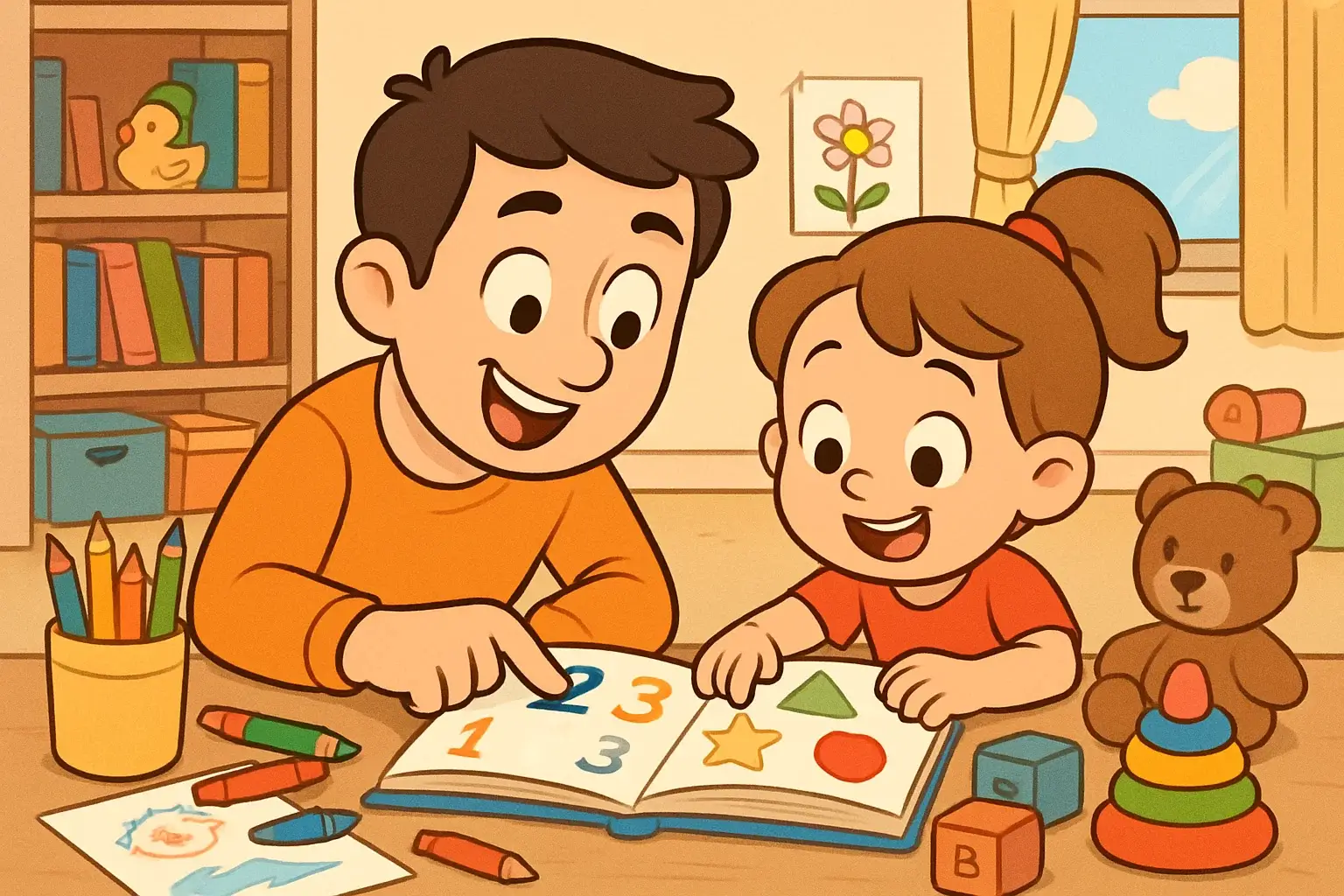
Finding quality educational resources for preschoolers doesn’t have to break the bank. High-quality early childhood education is widely recognized as a key factor in supporting long-term academic achievement. Children who engage in meaningful early learning experiences often show better school readiness and social development. As a parent, you play a crucial role in your child’s developmental journey, and the good news is that numerous free resources can help you create meaningful learning experiences at home.
The digital age has opened doors to educational materials that were once only available to professional educators. These resources empower families to supplement traditional learning with engaging, age-appropriate activities that support cognitive, social, and emotional development.
Helping with the Big Picture
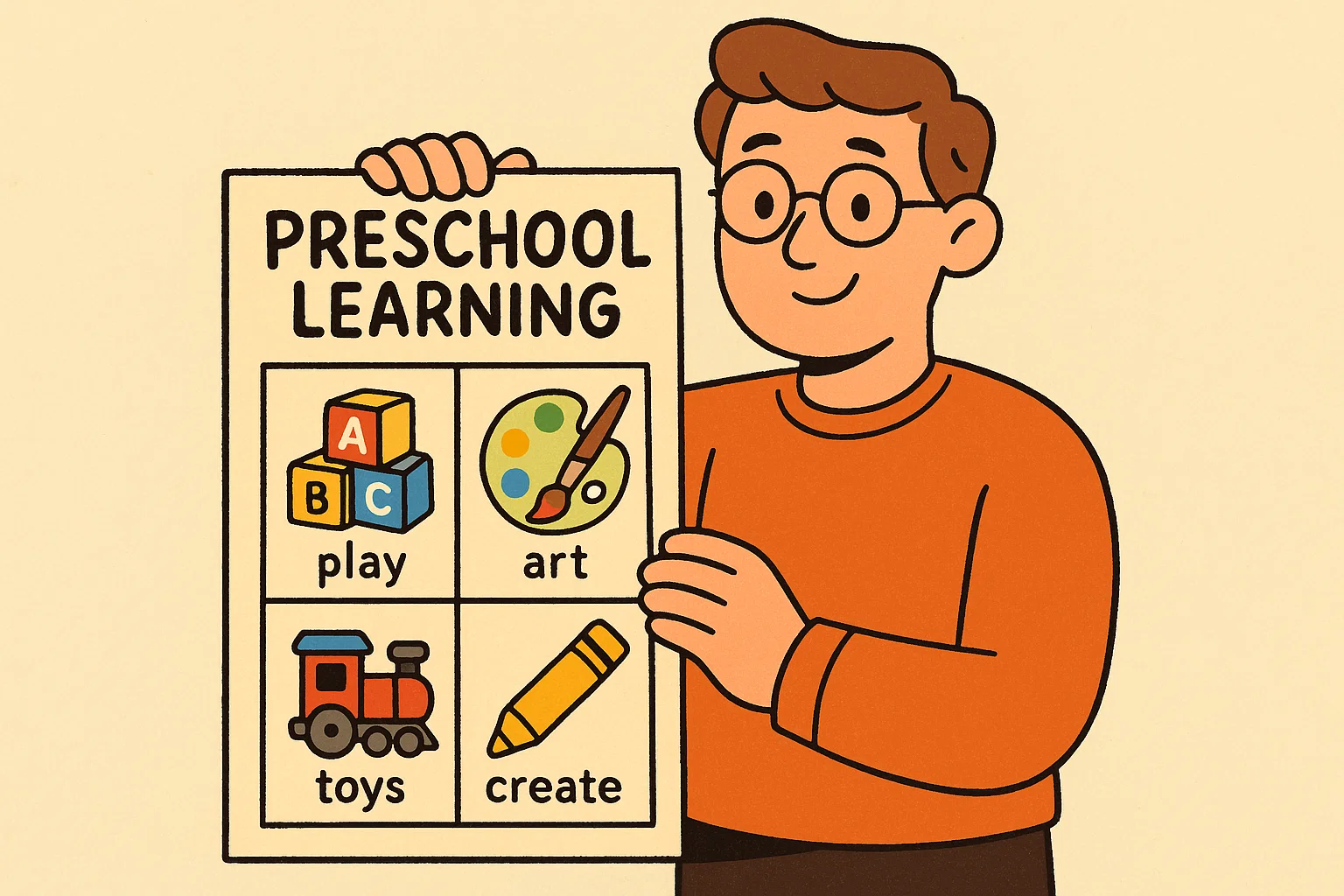
Understanding the broader philosophy of preschool education helps you make informed decisions about your child’s learning journey. Quality early childhood education focuses on holistic development rather than academic drilling, emphasizing play-based learning that nurtures creativity, problem-solving, and social skills through hands-on exploration and interactive activities.
Kaplan Insights & Inspirations
Kaplan’s free educational platform offers comprehensive lesson plans designed by early childhood experts. Their key features include:
- Structured daily activities that balance learning with play
- Seasonal themes and holiday projects for year-round engagement
- Step-by-step guidance for parents new to home education
- Minimal materials required for maximum educational impact
The platform covers essential developmental areas from fine motor skills to social-emotional learning, making professional-grade education accessible to every family.
Teach Preschool Blog by Expert Educator
Deborah J. Stewart’s Teach Preschool blog represents decades of classroom experience translated into practical advice for parents. Her approach emphasizes building confidence in your teaching abilities while maintaining realistic expectations about what young children can accomplish.
Stewart’s expert guidance helps parents navigate common challenges like screen time management, behavioral issues, and adapting activities for different learning styles. Her realistic scheduling advice enables busy families to integrate meaningful learning into daily routines without overwhelming parents or children.
Preschool Inspiration and Simply Kinder Blogs
Katie Christiansen’s Preschool Inspiration offers creative project ideas that spark curiosity and imagination. Her resources focus on process-oriented activities that allow children to explore and experiment without pressure to achieve perfect results.
Jennifer Kadar’s Simply Kinder provides systematic approaches to skill-building, with particular strength in literacy preparation and mathematical concepts. Both blogs excel at adapting classroom techniques for home use, offering alternatives when materials aren’t readily available.
Developing Pre-Math Skills 📊
Mathematical thinking begins long before formal arithmetic instruction. Preschoolers develop numerical understanding through counting games, pattern recognition, and comparison activities that build foundation skills for future academic success.
| Math Skill Area | Age Range | Example Activities |
| Number Recognition | 3-4 years | Number hunts, counting songs |
| Patterns | 3-5 years | Color sequences, shape patterns |
| Measurement | 4-5 years | Comparing heights, weights |
| Sorting | 3-4 years | Grouping by color, size, type |
Early Math Counts Materials
The University of Illinois at Chicago developed Early Math Counts as a comprehensive resource for introducing mathematical concepts to young learners. Their research-based programs break down complex ideas into manageable, engaging activities that make abstract mathematical concepts concrete and meaningful.
The platform excels at teaching comparison concepts like “more than” and “less than” through hands-on experiences. Their fraction work uses real-world examples like sharing snacks or dividing toys, helping preschoolers understand mathematical relationships through familiar situations.
Fun Learning for Kids Game-Based Activities
This resource specializes in disguising mathematical learning within entertaining games and crafts. Children develop counting skills through treasure hunts, learn shapes by creating art projects, and explore measurements while cooking simple recipes.
The platform’s strength lies in its ability to make learning feel like play through movement-based activities that appeal to active learners. Creative projects combine art with math concepts, while multi-sensory experiences reinforce learning through different channels and adapt to various home environments.
DIY Math Activities at Home
Creating mathematical learning opportunities doesn’t require expensive materials. Simple household items become powerful teaching tools when used creatively:
- Counting Games: Use buttons, pasta, or coins for hands-on number practice
- Pattern Making: Arrange fruits, toys, or clothing items in sequences
- Measurement Fun: Compare ingredients while cooking or measure family members’ heights
- Shape Exploration: Find geometric forms in everyday objects around your home
Exploring Art, Creativity & Sensory Skills 🎨
Artistic expression and sensory exploration support brain development in ways that purely academic activities cannot match. These experiences build fine motor skills, encourage creative problem-solving, and provide emotional outlets for young children.
Happy Hooligans Sensory Projects
Jackie Currie’s Happy Hooligans offers extensive recipes for sensory play materials that you can create at home. Popular options include:
- Homemade playdough with various textures and scents
- Edible finger paints safe for curious toddlers
- Sensory bins using rice, beans, or pasta
- Water play activities for outdoor learning fun
The site’s detailed instructions and safety considerations make it easy for parents to facilitate rich sensory experiences without worry about harmful materials or excessive mess.
Hands on as We Grow Art Activities
This resource focuses specifically on developing fine and gross motor skills through creative projects. Activities typically include:
- Scissor skills practice through cutting exercises and collages
- Pincer grip development via tweezers and small object manipulation
- Hand strengthening through squeezing and molding activities
- Bilateral coordination using both hands together effectively
Projects often incorporate learning objectives beyond art, such as color recognition, following multi-step directions, and developing patience and focus.
Open-End Craft Ideas at Home
The most valuable art activities allow for individual interpretation and expression. Consider these approaches:
- Drawing exercises that focus on process over product
- Clay or playdough exploration without specific outcome expectations
- Music and movement games that combine creativity with physical activity
- Nature art projects using collected leaves, rocks, and flowers
Pre-Reading & Pre-Writing Resources 📚
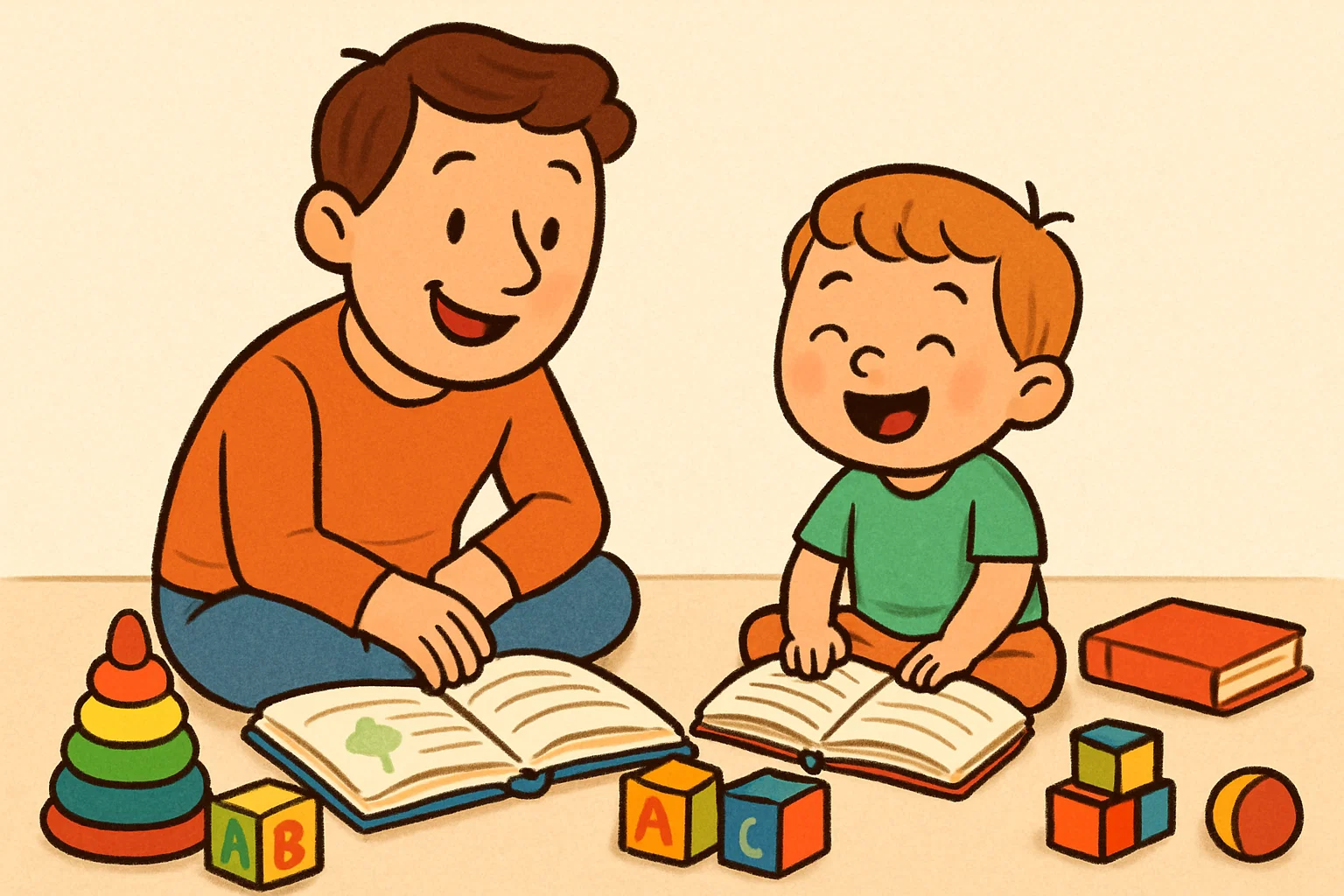
Literacy development begins with exposure to rich language experiences, storytelling, and print awareness. These foundational skills develop gradually through consistent exposure to books, conversations, and writing opportunities.
Public Library Digital Programs
Modern public libraries offer remarkable digital resources that extend far beyond physical book collections. Many provide access to thousands of e-books, audiobooks, and interactive reading programs specifically designed for preschoolers, all accessible with a simple library card.
Virtual story times have become particularly popular, allowing children to participate in group reading experiences from home. These programs often include follow-up activities, discussion questions, and related craft projects that extend the learning experience beyond the initial story.
Childhood 101 Reading and Book Love
This resource excels at helping parents select age-appropriate books that match their children’s interests and developmental levels. Their curated lists address common themes like friendship, emotions, and problem-solving while highlighting diverse authors and perspectives.
The site provides guidance on reading aloud effectively, asking engaging questions, and encouraging children to make connections between stories and their own experiences.
Scholastic, Barnes & Noble, and Storyline Online
These platforms offer professional-quality storytelling experiences featuring celebrity narrators and high-production values. Key features include:
- Celebrity-narrated books with engaging visuals
- High-quality sound effects and animations
- Completely free access to beloved children’s literature
- Downloadable activity sheets and discussion guides
- Extension activities that reinforce story content
- Author interviews and behind-the-scenes content
Barnes & Noble Virtual Events:
- Live author readings and interactive sessions
- Q&A opportunities with children’s book creators
- Seasonal storytelling events and book recommendations
Science Introduction 🔬
Preschoolers are natural scientists, constantly observing, questioning, and experimenting with their environment. Quality science resources channel this curiosity into structured learning experiences that build observation skills and scientific thinking.
Field Museum Learning at Home
The Field Museum’s virtual offerings bring world-class exhibits directly to your living room. Available experiences include:
- Dinosaur collections with interactive fossil exploration
- Evolution displays presented in child-friendly formats
- Natural history exhibits encouraging questions and discovery
- Virtual dig experiences that simulate archaeological work
Interactive elements allow children to examine specimens up close while learning from museum educators, often including printable activity sheets for hands-on follow-up.
Education.com Science Lessons
This platform offers hands-on experiments perfect for curious preschoolers. Popular activities include:
- Sink-or-float investigations using household items
- Simple solar oven construction for weather and heat exploration
- Weather observation projects connecting learning to daily experiences
- Basic chemistry experiments using safe kitchen ingredients
Safety considerations are clearly outlined, and most experiments use common household materials while emphasizing prediction, observation, and discussion over predetermined outcomes.
Audio-Visual Learning 📺
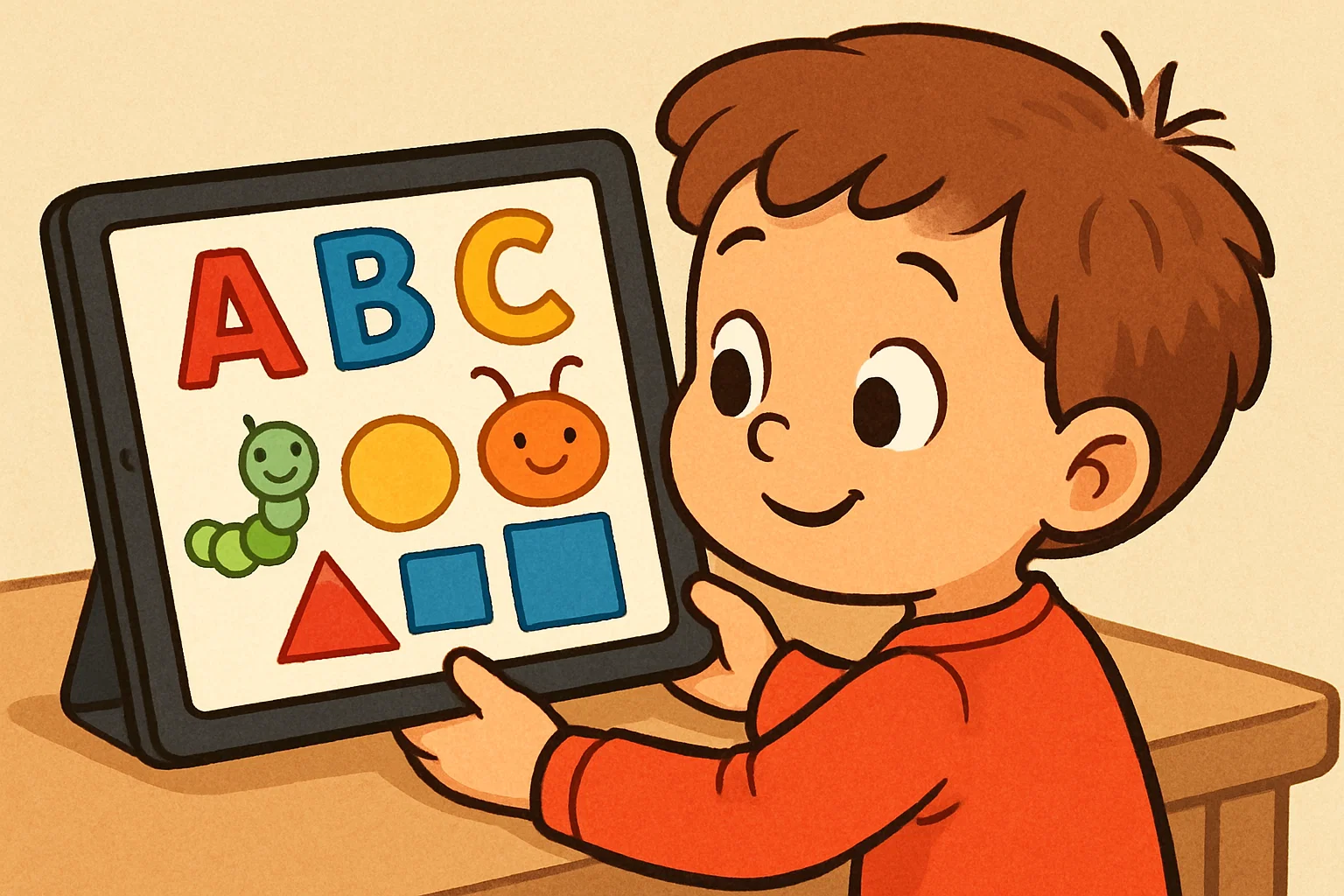
When used thoughtfully, digital media can enhance learning by providing visual demonstrations, interactive experiences, and exposure to concepts that might be difficult to replicate at home. The key lies in selecting high-quality content and maintaining active engagement.
PBS Kids Educational Games and Videos
PBS Kids has established itself as the gold standard for educational children’s programming. Their free platform offers games and videos covering reading, mathematics, science, and even Spanish language learning, all featuring beloved characters from quality television programs.
Content is age-appropriate and educationally sound, developed in consultation with child development experts and educators. Interactive elements encourage active participation rather than passive viewing.
Sesame Street Interactive Content
The legendary educational program continues to evolve with digital offerings that maintain the show’s commitment to learning through entertainment. Games, videos, and art activities featuring familiar characters help children feel comfortable while exploring new concepts.
Resources often address social-emotional learning alongside academic skills, helping children develop empathy, conflict resolution skills, and emotional awareness through engaging storylines and activities.
ABCya and Kids Academy Educational Games
These platforms offer skill-specific games that provide targeted practice in areas like letter recognition, counting, and beginning reading skills. Popular options include Monster Mansion Letter Match for alphabet practice and Birthday Candle Counting for number skills.
Video lessons complement game-based learning, providing direct instruction in bite-sized segments that maintain young children’s attention while delivering clear learning objectives.
Looking for More Free Preschool Resources Ideas & Guides?
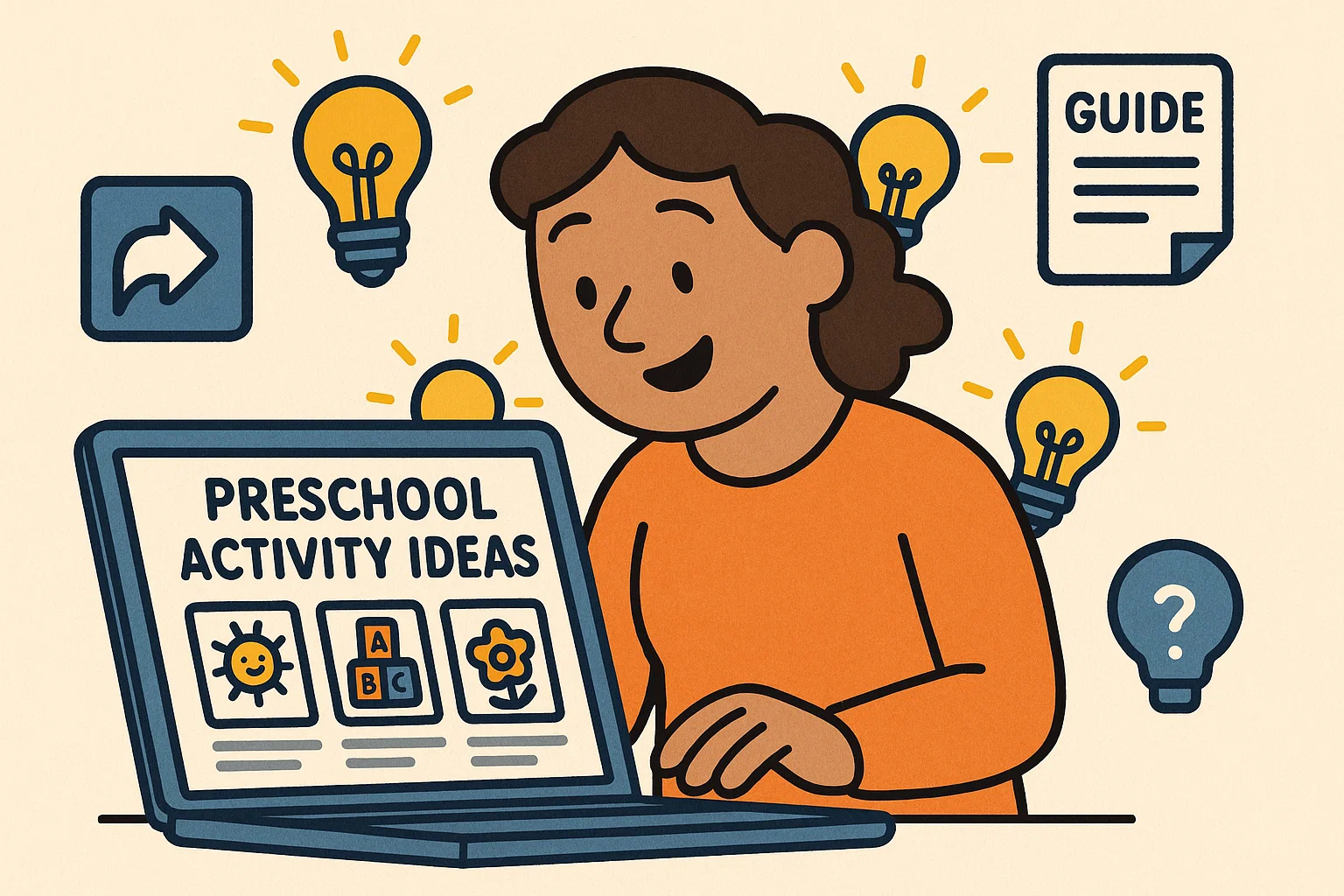
The landscape of free educational resources continues to expand, making it easier than ever for families to access quality learning materials. Knowing where to look and how to evaluate resources ensures you’re making the most of available opportunities.
Parent Network Suggestions
Online communities provide invaluable support for parents navigating early childhood education. Facebook groups dedicated to preschool activities often share printable materials, activity ideas, and troubleshooting advice from experienced parents and educators.
Forums and social media groups also offer opportunities to connect with other families, share successes and challenges, and discover local resources that might not be widely advertised.
Early Learning Portals and Guides
Government-sponsored educational portals often provide free access to research-based learning materials developed by educational experts. These resources typically include comprehensive guides, thematic lesson plans, and assessment tools that help track your child’s progress.
State education departments frequently maintain early learning resources that align with kindergarten readiness standards, helping ensure your home activities support school preparation effectively.
Resource Comparison and Effectiveness
When choosing among the wealth of available resources, consider your child’s individual interests, learning style, and developmental needs:
| Resource | Subject Focus | Activity Type | Format | Recommended Age |
| Early Math Counts | Mathematics | Structured early math games | Website with activities | 3–6 years |
| Fun Learning for Kids | Mathematics, Literacy | Play-based learning | Blog + printable resources | 3–8 years |
| Happy Hooligans | Art, Creativity | Arts & crafts, sensory play | Blog with tutorials | 2–6 years |
| Hands On as We Grow | Art, Motor Skills | Hands-on activities | Blog + activity plans | 2–7 years |
| Storyline Online | Literacy, Listening | Read-aloud video stories | Video-based platform | 4–8 years |
| Local Library Programs | Literacy, Social Skills | Storytimes, book clubs | In-person sessions | 0–8 years |
| Science Museums | Science, Curiosity | Exploratory learning | On-site exhibits + media | 3–10 years |
| Education.com | Science, General | Worksheets, experiments | Website + printable content | 4–10 years |
Remember: The most effective preschool resource is an engaged, supportive family that values learning as a lifelong journey rather than a destination.

